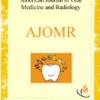Abstract
Title
INVESTIGATION OF MEDICAL IMAGING TECHNIQUE USED IN MEDICAL EDUCATION
Author
N.V.L.Saroja and Premalatha K
Email
drsarojaranjith@gmail.com
keyword
Situational investigation, Medical education, Work strength
Abstract
Introduction: The number of patient day by day increasing in our country and here needed to improvement safety and
efficacy for human wellbeing and regarding drug toxicity control. Distinct the superlative dealings with the medical
professionals, physician, health care team and regards, look after, long-suffering, and drugs which leading to improve the
patient care therapy. Illustrate the behavior and idealistic skills of medical professionals to treat the patient among that find
out the level of medical professionals educations and knowledge. Concurrence to World Health Organization, the midwife
personnel are very less according to health care society in India, and peoples are losing the hygienic facility due to not
enough health care employment. Aim and Objectives: Situational investigation of medical education and work strength in
India, To learn in highly developed and pioneering training criteria in categorize to augment the medical student education
circumstantial exploration and credible midwife learning program to develop the patient care therapy in India. Methods: The
data collection for the study was carried out from 1st January 2017 to 31st March 2017 with a selection of a total of 236
hospitals including medical professionals training play a part in the schoolwork. All surveillance integrated dimension of
medical staff day-to-day movement and ascetic-information of load and off-putting frame of mind. The spectators next get
hold of therapeutic related measures information as the medical are adopting a well thought-out implement. Results: health
practice actions being described in 36% of clarification. The 65 overall medical related events integrated five prescription
errors and nine undesirable treatment reactions. And 52 residual Medical Related Events, 70% has been associated with offputting illness crunch. Discussion: Medical Related Events this innovative study of dementia caregivers’ experience
showed that day-to-day fluctuations in each caregiver largely exceeded differences between caregivers for nearly all study
variables and particularly for subjective burden. Each of the six predictors showed a significant bivariate relation with daily
burden, explaining as much as 13%–33% of daily fluctuations. Conclusion: The Indian institution of midwife are extra
relationships with the hospital than forever as well as communally progressed midwife, and health care along with the
schooling, health care experiment and study. This study adds to an emerging research line showing that ESM can shed light
on an under researched yet rich part of the dementia care giving experience by capturing the substantial day-to-day
fluctuations and allowing the examination of stress processes as they occur in the real life of caregivers















